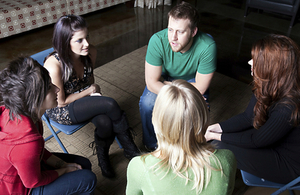From love, life and finances – how Brits’ superstitious beliefs impact everyday life!

A new survey of 1,500 Brits demonstrates the role of superstitions in today’s world and how they impact our everyday lives: from relationships and romance, to finances, travel and sport.
· 73% of those surveyed consider themselves superstitious
· 87% of high earners have superstitious beliefs
· The nation is becoming more superstitious with higher numbers of young people having superstitious beliefs compared to older generations
The survey conducted by topratedcasinos.co.uk uncovered the superstitious beliefs of the British public and the different views across the UK between regions, cities, generations and genders – and found that signs from the universe continue to play a large part in people’s lives!
The top 5 superstitious beliefs:
· Bride and groom not seeing each other the morning of their wedding day
· Breaking a mirror is bad luck
· Something old, something new, something borrowed, something blue
· Walking under a ladder will bring you seven years bad luck
· Opening an umbrella indoors
The age-old wedding traditions of the bride and groom not seeing each other before the ceremony and wearing ‘something old, something new, something borrowed, something blue’ have stood the test of time and are still considered significant today, with both featuring in the top 5 superstitious beliefs across the UK.
Times are changing
As a nation we are becoming increasingly superstitious with younger generations admitting to having more superstitious beliefs than those aged over 45. The research revealed that 82% of 18-44-year-olds consider themselves superstitious compared to only 63% of those age 45+.
Whilst astrology might seem like a bit of harmless fun to some, it seems those aged between 25 and 44 take their horoscope seriously. Meanwhile those aged 18-24 were most likely to believe in relationship compatibility based on star signs. But it’s not just the younger generations that believe in other-worldly signs; those aged 45 and over were the most likely to believe the full moon affects human behaviour.
Regional Differences
Superstitious beliefs also differ up and down the country. Bristol is the superstitious capital of the UK with Bristolians most superstitious about breaking a mirror, whilst those from Sheffield were the least superstitious. The research also revealed that Londoners were most likely to believe in relationship compatibility based on star signs, whilst those from Belfast are avid horoscope readers!
Gender Stereotypes
There were some intriguing differences between women and men’s superstitious beliefs, challenging common gender stereotypes. It may be unsurprising that women were overall more superstitious than men, however when it comes to other-worldly signs and spiritual pursuits like having your tea leaves read and the full moon affecting behaviour, men were bigger converts than women! With regards to relationship compatibility based on star signs women revealed they gave more weight to this than men.
Relegated from the lounge
It seems superstitious beliefs and behaviours are common amongst sports fan too! An astonishing 10% of respondents have an unlucky partner or family member who has been banished from watching a sports match, labelled a bad omen. 3 in 10 also believe a lucky item of clothing (yes that includes underwear) will boost their team’s fortunes during the game. Those on high salaries were also more likely to have superstitious beliefs relating to sport than those on low incomes.
Flight Risk
When it comes to travel, flying on Friday the 13th was the most unappealing travel prospect for our respondents; 22% would rather bail on their trip than fly on supposedly the unluckiest date in the calendar! Hotel rooms on the 13th floor were only slightly less of a concern at 18% whilst sitting in aisle 13 of the plane only worried 9%.
Money Matters
88% of respondents earning over £46,000 self-reported as being superstitious. This compares to 72% earning £45,000 and under. Those on lower salaries over-indexed on following the ‘three drains’ superstition, while higher earners were more likely to believe bad luck comes in threes.
The top superstition followed by high earners, on salaries of £86k or over, is the age-old belief that breaking a mirror signifies bad luck. To some this may seem trivial but 1 in 3 people on high incomes admitted to believing this superstition. Those on high incomes also avoid walking under a ladder and opening an umbrella indoors!
Relationship Status
With regards to people’s relationship status, those who are married but had been divorced were the most superstitious, whilst those who are divorced were the most superstitious about the bride and groom not seeing each other before the big day, with 62% divorcees believing in this. Divorcees were also twice as likely as single people to believe in horoscopes and twice as likely as those who are married but had been divorced to believe in relationship compatibility based on star signs.




